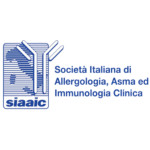
Don’t perform allergy tests for drugs (including anhestetics) and/or foods when there are not clinical history and symptoms suggestive of hypersensitivity reactions.
In absence of clinical history of signs/symptoms of suspect hypersensitivity reaction (i.e.: urticaria or other typical muco-cutaneous manifestations, angioedema, hypotension, dyspnoea, simultaneous involvement of two or more organs/apparatus…) allergometric tests do not have any diagnostic value nor any predictive value for future allergic reactions.Any positive allergometric test, in absence of clinical history and/or signs/sympotms of suspect allergic reaction is just indicative of an immunological sensitization to the tested antige, and it doesn’t have any predictive value for future allergic reactions; on the other hand, any negative result is solely indicative of the current absence of sensitization, and it will not exclude any future allergic reaction.
The harms related to this procedure are: 1) non adequate therapeutical behaviours (including dietetical ones) which are potentially harmful because they can preclude the use of drugs or the intake of foods towards the patient is not allergic; 2) possible neo-sensitization induced by the tests themselves.
Sources
1. Boyce JA, Assa'ad A, Burks AW, et al. Guidelines for the diagnosis and management of food allergy in the United States: report of the NIAID-sponsored expert panel. J Allergy Clin Immunol. 2010 Dec; 126(6 Suppl): S1-58.
2. Nugent JS, Quinn JM, McGrath CM, Hrncir DE, Boleman WT, Freeman TM. Determination of the incidence of sensitization after penicillin skin testing. Ann Allergy Asthma Immunol. 2003 Apr; 90(4): 398-403.
3. Uter W, Hillen U, Geier J. Is incident sensitization to p-phenylenediamine related to particular exposure patterns? Results of a questionnaire study. Contact Dermatitis. 2007; 56(5): 266.
Attention. Please note that these items are provided only for information and are not intended as a substitute for consultation with a clinician. Patients with any specific questions about the items on this list or their individual situation should consult their clinician.


Recent Comments